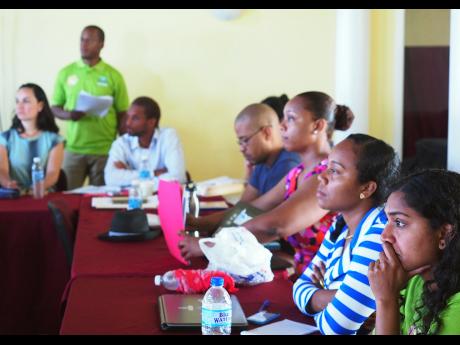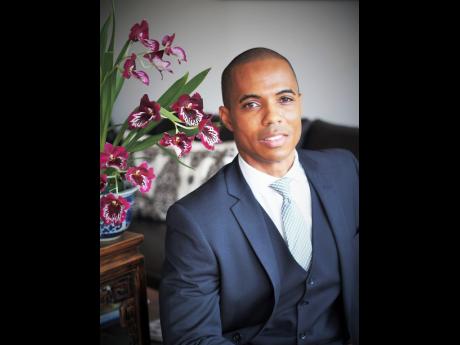CLiC: A chance at skills building in conservation
Two years ago, a group of Caribbean and United States (US) colleagues - among them Dr Leo Douglas of Birds Caribbean - got together to work out a programme to enhance conservation leadership in the region.
Inspired by the US-based Emerging Wildlife Conservation Leaders training programme, the group - including Kelvin Alie, Michelle Benham, Andrea Easter-Pilcher, Heather Eves, and Nadra Nathai-Gyan - came up with CLiC, short for Conservation Leadership in the Caribbean, for which they now comprise the board of directors.
"Our interest was to create a fellowship programme that was accessible and affordable for Caribbean youth to be trained in environmental management," Douglas told The Gleaner.
"We spoke about the need for more international training for Caribbean people in conservation work and about how a lot of the problems in the Caribbean were becoming more global and how we needed to address them - from the lion fish to climate change. We needed to get our people thinking globally about what it means to collaborate (for example) and pulled together the ideas of what this would look like and what we wanted to achieve," he added.
Fast-forward two years, and they have had their first group of fellows (2014-2016) and are recruiting a second cohort.
"We would love to get more Caribbean NGOs struggling to train their staff into the programme," remarked Douglas.
He added that they are also keen to have younger people vie for a place in the fellowship, which is funded primarily by the US Fish and Wildlife Service and is available free of cost to participants.
St George's University (SGU) in Grenada, through which the programme is run and with whom they are seeking to have it accredited, is also a partner. The International Fund for Animal Welfare also contributes.
The 2014-2016 group comprised 18 participants from 12 countries, including a representative from the Jamaica Conservation and Development Trust.
A look at the evaluation documents of that first group reveal some satisfied participants. Comments included:
- "My overall experience was positive as I enjoyed every aspect of the course. I liked the video sharing and having to lead the class on different topics. This type of teaching is what actually helps increase my understanding as opposed to the one-dimensional chalk talk"; and
- "Beyond my expectation. It was truly an eye opener towards the challenges ahead of us when it comes to protecting our natural resources and biodiversity. I am strongly feeling the urge to start a new endeavour towards involving more young professionals in conservation initiatives."
Douglas is pleased.
"Our scholars write grants, get funding, develop social marketing campaigns. The most exciting part is we try to do this without uprooting them from the islands. We keep them in their own institutions," he said.
RELEVANT INFORMATION
"A lot of things they are doing online are related to their organisation, and then they spend maybe 10 days at SGU to keep them grounded in the region and keep them contributing what they are learning to on-the-ground issues and to their organisations and stakeholders," added Douglas.
Criteria for selection to this next cohort include:
- Being a citizen of the Wider Caribbean region;
- Having worked in the natural resources conservation field for at least three years and planning to work at least 15 additional years (preferably in the Caribbean region);
- Being able to commit to devoting at least 10-12 hours per month to a CLiC conservation project; and
- Being able to fully participate in all online and in-person training courses/workshops/modules.
Applications are to be submitted complete with a resume, supervisor approval form, and reference letter to conservationcaribbean@gmail.com by 5:00 pm on January 31.


